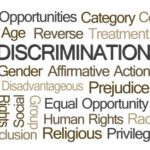Author Archives: Jay Butchko

What is National Origin Discrimination?
Unlawful employment discrimination can take many forms, and it can happen for many different reasons due to a variety of factors. National origin discrimination is one type — of many — of unlawful employment discrimination under the Florida Civil Rights Act of 1992 (FCRA), as well as Title VII of the federal Civil Rights… Read More »

Understanding Quid Pro Quo Sexual Harassment
Employees in South Florida have protections against discrimination on the basis of sex under Title VII of the Civil Rights Act of 1964, which is a federal law, as well as under the Florida Civil Rights Act. There are multiple forms that sex discrimination can take, and one type of sex discrimination is sexual… Read More »

DOL Final Rule Increases Salary Threshold for Overtime Protections
The Fair Labor Standards Act (FLSA) requires that employees be paid a minimum wage and overtime pay at the rate of 1.5 times their normal hourly wage when they work more than 40 hours in a workweek. However, many employees in South Florida are “exempt” employees, which means their employer does not have to… Read More »

Discrimination in Hiring: What Does It Look Like?
Employers in Palm Beach Gardens and throughout the state of Florida are prohibited from discriminating against job applicants and cannot engage in unlawful discrimination while hiring new employees. While many current employees in South Florida know that they have rights when it comes to prohibitions against various kinds of discrimination in the workplace, it… Read More »

What You Should Know About Pregnancy Discrimination in Florida
Facing discrimination in any circumstances while applying for a job or working for an employer can be devastating. Unlawful discrimination can take many different forms, including discrimination against a job applicant or an employee on the basis of pregnancy. Pregnancy discrimination is unlawful under both federal and state law, and it is essential to… Read More »

Can Sexual Harassment Be Subtle and Still Unlawful?
Sexual harassment occurs much too often in Florida workplaces and in workplaces throughout the country, and it can take many different forms. Indeed, according to the US Equal Employment Opportunity Commission (EEOC), between 2018 and 2021, there were more than 27,000 charges alleging sexual harassment in the workplace (as reported to the EEOC), and… Read More »

Workplace Dress Codes and Grooming Requirements
If you have applied for a job or started working for a workplace with a specific dress code or grooming requirements, or if your current employer recently implemented a dress code or grooming requirements, you may be wondering if you have any rights and whether the employer is violating any laws. Issues pertaining to… Read More »

What Employees Should Know About the New Rule on Noncompete Agreements
For quite some time, a wide range of employers throughout South Florida have required new employees to sign noncompete agreements in order to restrict the employee’s ability to perform the same or similar work for a competitor in a nearby geographic area for a limited period of time. While noncompete agreements in Florida were… Read More »

What is Religious Discrimination?
Working in Palm Beach Gardens or a nearby area should never have to mean that you are subject to religious discrimination from an employer or from co-workers or even clients and customers. It is critical for you to know that there are federal and state laws that protect Florida employees against religious discrimination in… Read More »

Is There a Difference Between Discrimination and Retaliation?
Being treated unfairly in the workplace is an experience that should not happen to anyone. However, employers do engage in various forms of adverse treatment of employees, and in many cases, adverse treatment can constitute unlawful discrimination or unlawful harassment. If you are facing unfair treatment in your workplace, you might have started searching… Read More »
